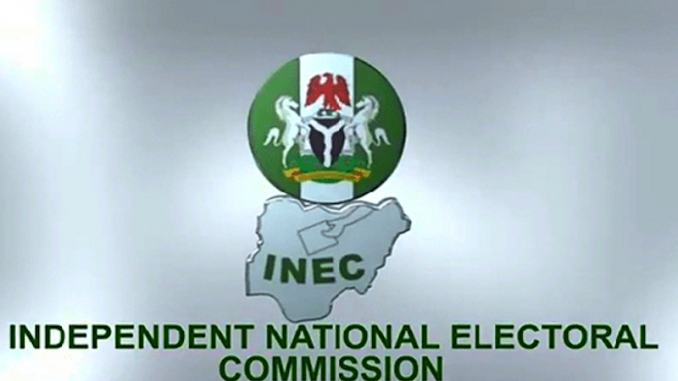The Independent Electoral Commission (INEC) has dismissed claims of discrepancies between the results on its website and those presented by returning officers
By Emmanuel Oloniruha
The Independent Electoral Commission (INEC) has dismissed claims of discrepancies between the results on its website and those presented by returning officers at the National Collation Centre, which were broadcast live.
The commission stated this in letter dated Aug. 15 to the Centre for Collaborative Investigative Journalism (CCIJ), which alleged to have found some discrepancies between the election results announced by INEC and the uploaded results to the INEC Result Viewing (IReV).
INEC in the letter signed by the Chief Press Secretary to INEC Chairman, Mr Rotimi Oyekanmi, said that there are no “differences” in the number of polling units and registered voters in the listed States.
INEC also maintained that the total number of polling units and registered voters remained as announced by the commission.
The commission said that it “does not announce election results on YouTube” adding that the 2023 presidential election results were announced at the National Collation Centre, Abuja, in the presence of stakeholders, including the media.
“You listed three YouTube video links from Channels Television, showing the interactions between the State Returning Officers of Imo, Abia, and Zamfara States and the INEC Chairman at the National Collation Centre, Abuja.
“It is important to note that the Returning Officers of the 36 States of the FCT are required to present their presidential election result individually to the Chief Returning Officer of the Federation for the Presidential election, Prof. Mahmood Yakubu, who is also the INEC Chairman.
“But contrary to your observations, there were no contradictions in the video clips.
“In conformity with the established procedure, the Returning Officer, in each clip, announced in descending order, the total valid votes, rejected votes, total votes cast, cancelled votes (if any), the specific areas where such votes were cancelled, and where the election did not hold with reasons.
“Party agents were subsequently allowed to make observations or raise objections after each announcement, but there was none in all the video clips,” INEC said.
The commission also stated that the centre did not disaggregate and articulate its data in the other listed examples-Imo, Edo, Delta, Lagos, Cross River, Ebonyi, Akwa Ibom, Abia and Zamfara States.
“For instance, in Edo, you gave the following account: 185 Pus, 111,683 Registered Voters (Election Papers), PUs (YouTube) 54, Registered Voters (YouTube) 36,264; Difference: 131 Pus/75,419 Registered Voters.
“However, the Presidential election was conducted in 176,606 PUs, spread across 8,809 Wards in 36 States and the Federal Capital Territory.
“Supplementary elections were also held in 23 States on April 5, 2023 for various reasons captured under chapter 11 of the Report of the 2023 General Election.
“To that extent, we need to know the State, Local Government Area (LGA), Ward and specific polling unit being referred to for proper evaluation of your enquiries and to enable us to provide the required information.
“Unfortunately, the precise information necessary to address your enquiries was missing.
INEC, however, insisted that there no differences in the number of polling units and registered voters in the listed states.
It said that the total number of polling units and registered voters remains as announced by the commission.
It stated that the result of an election may be cancelled for specific reasons, including violence, over-voting and refusal to use the Bimodal Voter Accreditation System (BVAS), as stipulated in the extant laws.
“At the same time, the conditions for making a return when the result of an election is cancelled or declared null and void in specific polling units have also been explained in the Electoral Act 2023 and the INEC Regulations and Guidelines for the Conduct of Elections (2022).
INEC added that its comprehensive 468-page Report of the 2023 General Election officially released in March 2024 and immediately uploaded to its website www.inecnigeria.org, already provided answers to the raised questions by the centre.
It advised the centre to read the full details on its website www.inecnigeria.org.
“The results of the 2023 Presidential election presented by our 36 State Returning Officers and the Returning Officer for the FCT at the National Collation Centre, Abuja are official and authentic.
“The figures quoted in your letter purportedly from some local government areas in Imo State are inconsistent with the details/results presented publicly by the Imo State Returning Officer at the National Collation Centre, Abuja.
The commission pledged to continue to improve its processes and procedures after every election.
NAN reports that the centre relying on Freedom of Information Act in its letter dated Aug. 7 sought INEC clarification on “discrepancies between the election results announced on YouTube by INEC compared with the results from the election papers uploaded into IREV.”
The centre alleged that “overall, in the broadcasted announcements, INEC reported 1,578 polling units (PUs) where voting was canceled because of irregularities.
“No figures were given for the reason, though officials cited overvoting, violence and other irregularities. The total registered voters was about 1,205,000 voters.
It alleged that in the documents filed in IREV, INEC polling workers reported 2,203 polling units (Pus) where voting was canceled because of irregularities.
“Violence was the leading reason, covering about half of the polling stations affected. The total registered voters was about 1,221,000 voters,” the centre alleged among others. (NAN)




